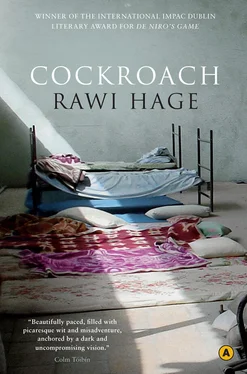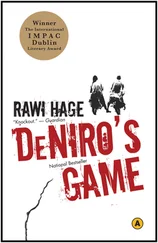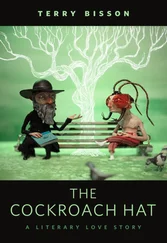Yes, he replied.
I haven’t heard any recent songs in a while, I said. I’ve been hanging out with Iranians too much. We both laughed. Seydou smiled again and washed more dishes and sang a few African songs.
A few minutes later, Reza and his band came and the music started. They played their instruments in unison — soft background music. Reza and I did not even glance at each other.
I kept busy, attentive to the bread that had to be sliced, stacking dishes, picking up empty plates from beneath customers’ chins. The owner asked me a few times to go down to the big fridge in the basement and bring up limes for the bar and more sodas. The only time I stopped for a moment was when I went to the bathroom in the basement and relieved myself. I washed my hands afterwards: “Employees must wash hands,” a sign said. Then I went back upstairs and worked.
Late in the evening, after the customers were gone, Reza got a ride home with the other musicians. He invited me to come, but I declined. I did not feel like sitting on a secondhand sofa in one of those depressing newcomers’ homes, filled with smoke and broken alarms. Besides, when Reza and his friends got together they talked in Persian and I could not understand a damn thing.
Shortly after Reza left, the owner’s wife and daughter came to pick up the owner. Before they showed up, the owner counted his money behind the bar. Then he waited for his wife and daughter just inside the restaurant door, behind the locked glass. When his wife showed up, he asked everyone else to leave first. When he was alone, he rushed into the car and locked the doors of the vehicle. I watched his daughter leaning against the car-window glass, looking at me. I smiled. She barely nodded, then pulled back her face and disappeared.
I walked home. Late at night in this city, the snow is pasted just above the street like a crunchy white crust that breaks and cracks under your feet. There is a sound to the cold, a constant quiet, a subtle permanent buzzing. It is not the vibration of the long-shadowed fluorescent city lights tracking the trajectory of falling snow, nor is it the wind, nor the people. It is something that comes out from underground and then stays at the surface. After a while stomping through the snow, I could hear the rhythm of my own steps. My breath was smoking like a Bollywood train, my feet were steadily marching; I was all warmed up. I got rid of my scarf first, then unzipped another layer; my hands swung back and forth like those of a soldier. The city was empty and whistling in the wind.
I WENT TO THE RESTAURANT on Saturday and Sunday, and on Monday I was off work. My appointment with my therapist was at three, and I had nothing to do until then. I walked into the kitchen and pretended to be busy washing the dishes. Then, suddenly, I pulled off my slippers, opened the cupboards, and began pounding left and right. Whether they are here or not, I thought, I will keep those insects on their toes! Guilty or not, present or not — this was my new tactic. Well, it was not my own idea, really. I was inspired by the story of a young man I knew who had experienced a totalitarian regime.
I had met this young man on a bus, back where I came from. The bus was crowded and he squeezed in next to me. He asked me for directions, and then he told me his story. He told me that he had been released only a few days ago from detention. The secret service in the small town where he came from made arbitrary arrests to keep the population afraid. For no reason, they would knock on people’s doors at night, line up the young men, randomly choose a few, and pack them into a jeep and off to jail. For a week or so the young men were beaten, humiliated, even tortured — all for no reason. Then the young men would be released so that everyone in town could see what was in store for them if they tried anything subversive. The young man on the bus had left his village, he said, and now he was looking for a job in the city. I thought he looked too honest to be hired by my mentor, Abou-Roro. He was either traumatized and couldn’t stop speaking or he was naturally too trusting. Either way, I thought, I couldn’t help him; he was damaged and he did not fit the profile of a petty thief.
We got off the bus, and the young man said he was hungry. I told him to follow me. I went straight to a grocery store and told him to wait for me outside. I went into the store and came out with a bag of bread, a package of cheese, some fruit, and yogurt. I gave this to him and turned to walk the rest of the way home. But this fellow followed me. He asked me my name, and talked more and more. So at last I asked him what kind of job he was willing to do. He assured me that he was willing to do anything. I looked at his hands and I could see they were rough — banged-up and strong. Had he ever stolen or killed? I asked him.
He stopped eating, bewildered. No, he said.
How far are you willing to go to survive? I asked.
I will steal, but not kill. I am hungry, but I won’t kill.
Would you kidnap? I said.
I am hungry, he answered.
Meet me here in two days, I said. Same place. In two days.
I learned that his name was Naim. I watched him eat, and I saw that he was very hungry.
HOW WAS YOUR WEEK? the shrink asked me later that afternoon.
Good, thank you. How was yours? What did you do? Did you watch TV, did you eat a good sandwich, open an interesting book, lie on the floor, walk barefoot, dance a little?
Genevieve smiled at me. How are you feeling?
Fine.
Any dizziness? Do you ever experience episodes?
What do you mean?
As if things around you are shifting or slipping?
No, I said.
You hesitated. You thought about it.
Well, yes. But everything shifts, everything slips.
Like what?
Like, everything around us.
Walls?
Yes, certainly walls.
Beds?
Uh-huh.
Does your bed shift?
The mirror does.
We have medicines now that can help you.
I am fine, I feel fine, I said. And anyhow, a mirror never reflects the same image twice.
Well, we might have to prescribe something for you eventually. But right now I am curious about something you said the last time we met, something about stealing.
I remained quiet.
Any break-ins lately?
No. Well, almost.
Almost?
I volunteered for something, but in the end I didn’t do it.
Who did you volunteer for?
For Farhoud, my gay friend.
Why?
To settle a score with someone who abused him.
But did he ask you to do it? Or did you volunteer without him asking?
No. Yes.
Do you like him? Is that why you volunteered?
I like him.
Genevieve was silent.
No, not that way, I added.
Have you ever been attracted to a man? she asked.
Not sexually, I don’t think. But my mentor was attracted to a man.
Genevieve flipped through her notes. Abou-Roro, your mentor in theft and crime?
Yes, and it killed him.
What do you mean, it killed him? Do you mean he couldn’t come to terms with the fact that he was attracted to men?
No, but because of the attraction he was killed. Shot dead.
Because people where you come from do not accept gays?
Well, yes. But no. It is a long story.
I am listening.
Well, you see, he was approached by a local gangster, a notorious, powerful man, one named Jurdak, to do an operation.
An operation. Like a medical procedure, Genevieve teased me.
No, I said. A kidnapping.
Genevieve lifted her head then, and I could see her ears turning pointy and poking through her glittering straight, long hair. She was struggling to keep her eyes from blinking under the weight of her heavy eyelashes.
I continued: The gangster gave him the name, address, and photo of the son of a millionaire. Abou-Roro was to kidnap the son, and Jurdak would ask for a ransom and deal with the negotiation and money collection, and all the logistics. A pretty straightforward operation. So one night Abou-Roro waited for the boy in the parking lot of a nightclub. He parked his car next to the boy’s car. When the son showed up and pulled out his keys to open the car door, Abou-Roro stuck a gun into his ribs from behind. He asked the boy not to turn around and shuffled him into the back seat. Naim, a hungry chap that I had recently met on a bus and introduced to Abou-Roro, covered the boy’s face with a hood. He blindfolded the boy and tied his hands, and they all drove outside the city to a house on a beach.
Читать дальше












